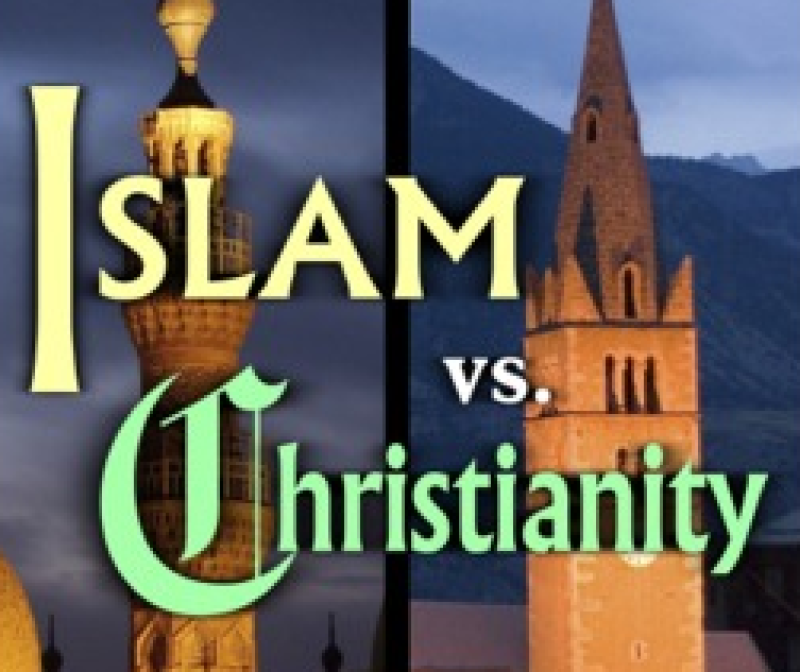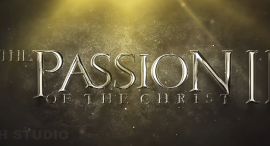

Recently, Christian consulting enterprise "Project Care," has published comparative demographics of the Christian and Muslim populations from 1990 to 2010. According to this report, while the percentage of the Christians is the pretty much same, the number of Muslims increased nearly two-fold.
Christianity feels threatened by the great expansion of Islam, and is extremely concerned with the mission of the Muslim religion. Sometimes, Christianity's aggressive evangelizing in the name of "missions' has brought the Christian Church into conflict with Islam. More recently, as Islam is actively propagating in Korea, it is a huge issue for the Christian Church to respond to this expansion of Islam. How does Christianity respond to this rapid Islamic expansion?
There was a similar situation in the Middle Ages when Luther lived. The emerging presence of Islam into the European continent was a threat to Christian Church. At the time, Luther expressed the views on the religion of Islam and advised how the Church should respond to Islam. I believe that Luther's views and advice on Islam let the Church know how to cope with the Muslim expansion.
Luther lived during a time when fear of Islam was dominant. Particularly, the Turks were expanding their military power in Europe, specifically at the doorstep of Vienna. For this, Gregory Miller, a professor of Malone University states: "To a large degree, the Turkish threat was so terrifying because many Germans understood the conflict between the Habsburg and Ottoman Empires to be a struggle not between political powers but between the face of Christendom and that of its arch-enemy, Islam."
As early as 1518, Luther identified the Islamic faith as the "scourge of God" and believed that the Muslims were God's punishment upon a sinful Christendom which had, among other sins, tolerated the papal abomination. The Turks would function as a German schoolmaster who must correct and teach the German people to repent their sins and fear God.
At this time, Luther's works showed that Christians need to repent their sins and do inward preparation before the present catastrophe.
In his work, Explanations of the Ninety-Five theses (1518), Luther said: ""to fight against the Turk is the same as resisting God, who visits our sin upon us with this rod." On War Against the Turk of 1529, Luther uses the same language, describing the Turk as "the rod of God's wrath" by which "God is punishing the world." This very conviction led him to call for Christians to repent and pray.
In his other work, Preface to the Tract on the Religion and Customs of the Turks (1530), Luther said: "We see that the religion of the Turks or Mohammed is far more splendid in ceremonies and, I might almost say, in customs than ours, even including that of the religious or all clerics. The modesty and simplicity of their food, clothing, dwellings, and everything else as well as the fasts, prayers and common gatherings of the people that this book reveals are nowhere seen among us - or rather it is impossible for any people to be persuaded to them "¦ Our religion is a mere shadow when compared to them (Muslims) and our people clearly profane when compared to them."
However, this is not to say that Luther accepted the Islamic faith. Rather, Luther's intention was to point out that the teachings of Islam contradicted the main doctrines of salvation and his central tenet, justification by grace through faith in Christ. Luther believed that the Islamic faith was a faith patched together from the faith of Jews, Christians and heathens. He explains the chief theological differences between Christianity and Islam in the following two ways:
First, the Muslim faith is a faith of justification by works. For this, Luther states: "If you are pious and just, and if you perform good works, you are saved." Thus, for Luther, the Muslim possesses a false righteousness that strives to be holy, not through faith in the merits of Christ, but through his own self-chosen works. The Muslim strives to "do good according to the light and understanding of reason and to be saved in this way."
Second, like their ancestor Nestorius, the Muslims believe that Jesus was only Mary's son and not the Son of God. They hold Christ to be "an excellent prophet and a great man" who preached to his own line and completed his work before his death just like any other prophet. Christ, however, is not as great a prophet as Mohammed, who is to be "worshipped and adored in Christ's stead." Thus, the Muslims refuse to accept Jesus as the true God and a true man. The doctrinal disagreement is about the two natures of Christ, which is the central doctrine for Christianity.
As mentioned above, on Luther's view and advice on the threat of Islam in Europe during 16th century Europe, we summarized the following:
First, the emerging presence of Islam into the European continent allows Christians to repent their sins and fear God. Luther advised that Christian Church was to admonish the papists to stop blaspheming God and to admonish the ungrateful, wanton Christian people to improve their behavior, to honor God's Word, and to call on God in prayer. The modesty and simplicity in Muslim lifestyle had been a catalyst for contemporary Christians to reform the false religious customs.
Second, by examining the study and reflection of Islam faith, Luther wanted to point out the false teachings of Islam. The Muslims believed that if we are pious and just, and if we perform good works, we are saved. In addition to this, they disagree the two natures of Christ, which is the central doctrine for Christianity. This means Islam is not a religion but rather a philosophy because they emphasize the human reason.
Today, our Christian Church is also facing the threat of Islam like the time Luther lived. How does the Christian Church response to Islam? I think that it is right response for the Christian Church to maintain that our faith be secularized and to know exactly the false teachings of the Islam faith, rather than Christians aggressively evangelizing and converting to Muslim in the name of "missions.'

Reverend and Doctor Jin O, Jeong is an assistant pastor for Korean congregation at Zion Lutheran Church, Belleville, IL. He graduated from Luther University and received a Ph.D from Yousei University. He was also a Research Fellow at Hebrew University and Visiting Scholar at Yale Divinity School. Tel: 618-920-9311 Email : jjeong@zionbelleville.org

















